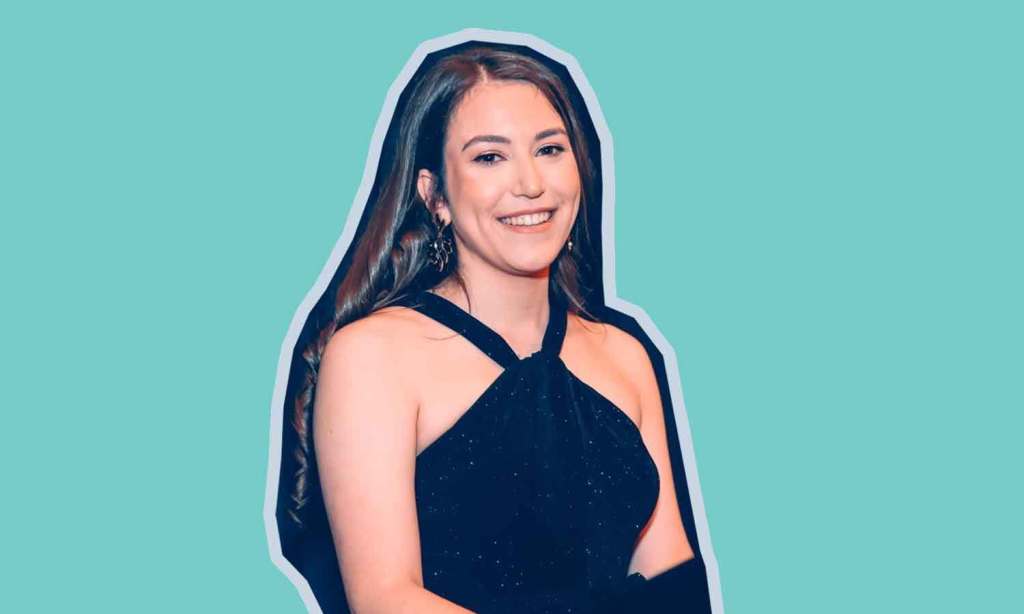Over 100,000 Australians lives have been saved due to cancer prevention and screenings — but ovarian cancer doesn’t have a screening program. In fact, it’s often referred to as “the silent killer” for that exact reason.
It’s the deadliest yet most underfunded female cancer in our country, according to Ovarian Cancer Australia. As for the five-year survival rate, the percentage currently sits at less than half. Three women die every day from the disease. 70% of those with advanced disease, who do achieve remission — well, the disease will come back.
That’s why Ovarian Cancer Australia is pushing so hard to increase Australians’ understanding of the disease this February, which is Ovarian Cancer Awareness Month. Like CEO of Ovarian Cancer Australia, Jane Hill, says, “We need more evidence and more resources to improve the lives of the women with this horrific cancer.”
February 24 is Teal Ribbon Day — a day where donations to Ovarian Cancer Australia are tripled — and, to mark this date, The Latch spoke to Chloe Spitalnic, who was diagnosed with stage 3 ovarian cancer at the tender age of 22.
‘Tender’ may be an oft-overused descriptor when describing youth, but there’s no other way to describe the tragedy of being diagnosed at such a young age; 42 years younger than the average age of diagnosis.
Chloe was diagnosed during one of Melbourne’s strict lockdowns, after experiencing a small pain in the side of her stomach she says “wasn’t excruciating [or] unbearable”. However, it was causing enough discomfort to tell her mum and sister about it. They suggested she see her GP, who “luckily” didn’t dismiss the pain as insignificant.
What followed was an ultrasound that showed signs of “potentially malicious” masses. Then, intensive testing in the emergency department the following day. Notified that the further scans and blood tests were showing signs of cancer, a diagnosis couldn’t be established until biopsies from surgery were extracted and analysed.
Only six days after visiting her GP with what was just discomfort, she found herself having major surgery. Five days after the surgery came the diagnosis: stage 3 ovarian cancer. More specifically, Low-Grade Serous, a rare type of ovarian cancer.
“I instantly feared I was dying,” Chloe says.
Wanting it to be untrue or a mistake — “I have no family history of cancer, so I never thought it would happen to me” — denial swiftly followed. After denial? Tears, understandably. “I couldn’t stop crying during and after that conversation.”
The cancer had spread from her ovaries to spots in her stomach and bladder. The thought of chemotherapy horrified her, especially in terms of what would happen to her long hair. “I know it can sound very superficial, but keeping my hair made me feel ‘less’ sick,” she recounts. “I never wanted to ‘look’ like I had cancer.”
Due to COVID (“a curse”), no one could be with her — not through tests, not through surgery. The news of her diagnosis? Relayed to her family via loudspeaker. She tells us that it’s taken a long time to fully feel comfortable recalling the experience, to admit to herself that she has cancer. Her frustration is apparent when the average age of diagnosis is mentioned: “Then why did I have to get it since I’m so young?!”
Since her first major surgery, she’s completed four rounds of chemotherapy, using two different forms of chemotherapy drugs, and has had additional surgery. Sadly, Chloe is not ‘cancer-free’ — and she’s been informed it’s highly unlikely she’ll ever be ‘cancer-free’. “The next plan of attack is to try another treatment method which will hopefully inhibit the further spread of the cancer.”
However, she’s still persevered through studying — undergoing an exam between her last two chemo rounds — and committing to a summer subject that started four days after her last surgery, a decision she’s “really happy with”. And she’s recently gone back to work. Regardless of her health, she wants her life to stay ‘normal’, citing that she’d like her friends to talk to her just like they did pre-diagnosis.
As for what she wants people — and more specifically, women — to know this Teal Ribbon Day is “[to] know and listen to [your] bodies”. Ovarian cancer symptoms are so vague, can often be mistaken for something else, and there’s no early detection test. “The only way to diagnose ovarian cancer is through specialised blood tests and biopsies from surgeries” — nothing like the ease of a pap smear or mammogram (the first time pap smears will be described with the word ‘ease’).
At this point in time, it’s often in “the more aggressive stages” — stages 3 and 4. There are also over a dozen forms of ovarian cancer; Chloe’s type is very rare and can develop in younger women. This leads to the next thing she wants people to know: “It really doesn’t discriminate against age.” In fact, lots of people told her it was unlikely to be ovarian cancer because of her age. She urges people to visit their GP and seek assistance when any issues arise.
To find out more about ovarian cancer, visit www.ovariancancer.net.au Today, on Teal Ribbon Day, any donations will be tripled.
Read more stories from The Latch and subscribe to our email newsletter.

